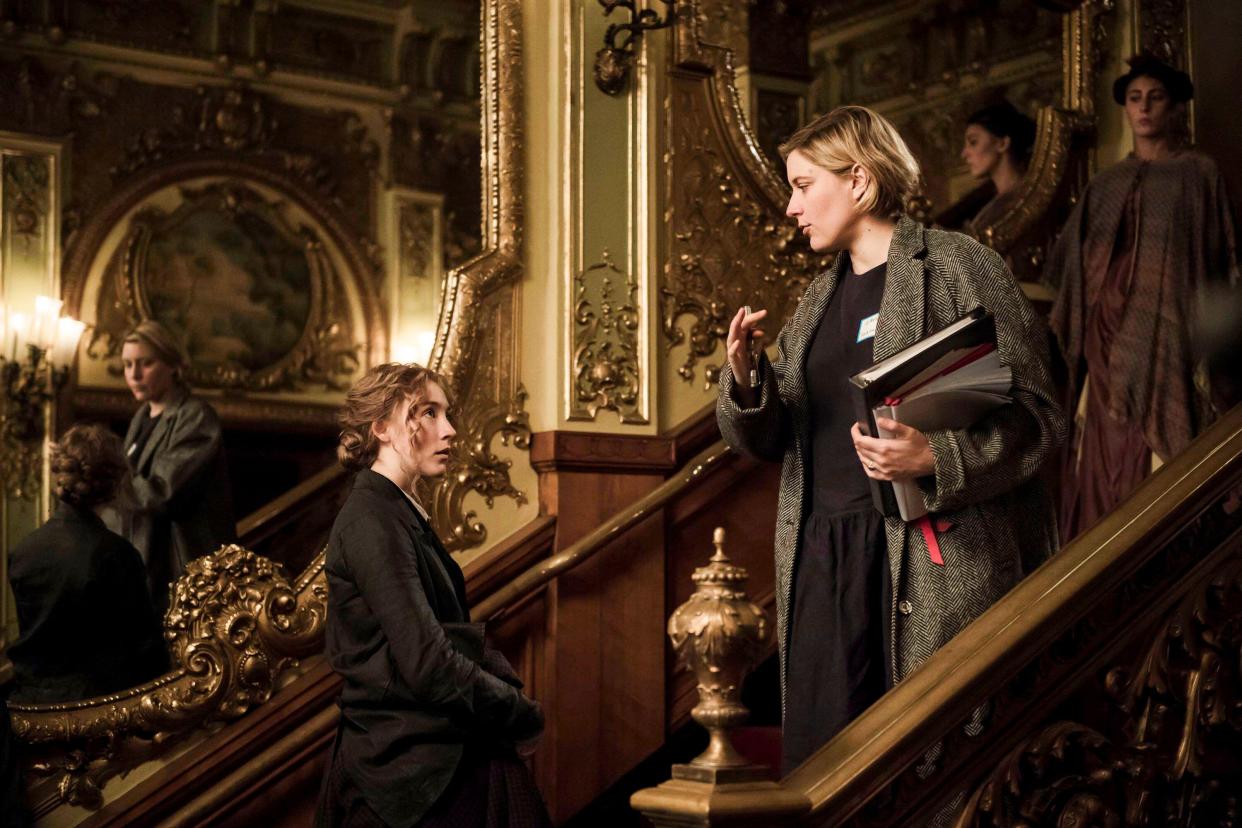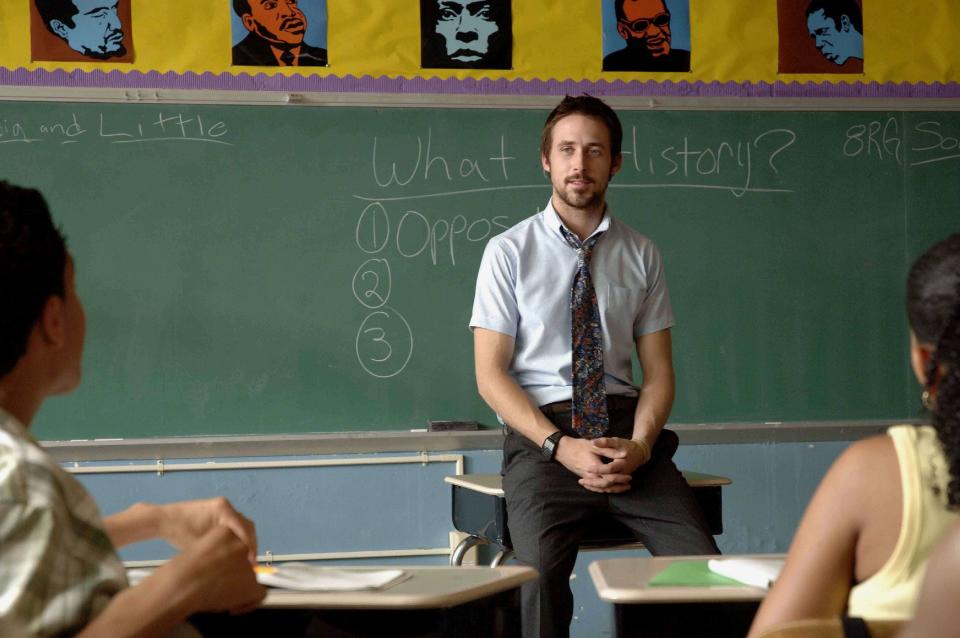Greta Gerwig Might Win an Oscar for Co-Writing ‘Barbie.’ She Should Have Also Won One Five Years Ago

- Oops!Something went wrong.Please try again later.
- Oops!Something went wrong.Please try again later.
- Oops!Something went wrong.Please try again later.
Columbia Pictures / Alamy
Greta Gerwig's Barbie ended up being one of the most divisive films of the past year, credited alongside Oppenheimer for jumpstarting a dying box office and racking up eight Oscar nominations on one hand, but inspiring a loud backlash on the other—including a trolling New York Times article, Werner Herzog calling it “sheer hell,” and Bill Maher saying it was “preachy and man-hating.”
Two things can be true at once, and for this writer’s money, much of the Barbie backlash is evidence that big-budget awards movies sponsored by toy companies are a gross, weird phenomenon most moviegoers would prefer didn’t exist, and the box office and critical acclaim is proof of how good a job Greta Gerwig and Noah Baumbach nonetheless did with this assignment. It’s proof that the right execution can turn a mostly thankless task into a worthwhile one. How many other people could turn a Barbie movie not only into a money maker, but a movie that gets eight Oscar nominations? I can’t think of any—but you can bet the head of every studio has spent the last eight months brainstorming names.
Barbie is currently running as an underdog in the Best Adapted Screenplay race, according to VegasOdds, +350 behind American Fiction (-175) and Oppenheimer (+275), and maybe that’s a good thing. Art with a high degree of difficulty is not the same thing as great art, as impressive a showcase as it may be. One thing I do know for certain: Greta Gerwig should already have a Best Adapted Screenplay Oscar. She should’ve won it in 2019, for Little Women.
It would’ve been easy (well, maybe not easy, but easier) for Greta Gerwig to conjure up a faithful, impeccably costumed and tastefully-acted adaptation of Louisa May Alcott’s classic 1868 novel about the four March sisters, destined to be rubber-stamped by critics and ignored by most moviegoers. We have umpteen Jane Austen adaptations and the career of Colin Firth as proof of concept for this.
That’s not what Gerwig did. Rather, she did give us a relatively faithful adaptation of Little Women, with iconic depictions of vain Meg (Emma Watson), overshadowed Amy (Florence Pugh), shy Beth (Eliza Scanlen), and headstrong, ambitious Jo (Saoirse Ronan). But she also went a step further, incorporating elements of Louisa May Alcott’s real life into the story in a meta-narrative in which Jo is actually a blend of Jo and Louisa May Alcott, a character who rewrites her own story as we watch.
In the film, Jo gets her book published only after the initially unimpressed Mr. Dashwood (Tracy Letts, once again brilliantly cast against type by Gerwig, who did it first in Ladybird) reads it to his daughters and they demand to know how it ends. Gerwig’s version sees Jo write the “happy ending,” the one 19th century readers and Mr. Dashwood surely would’ve demanded—marriage, children, a fulfilling life as a homemaker; the actual ending of Alcott’s book—even as we see Jo’s actual ending: publishing a successful book that gives her audience a fairy tale and provides her with an otherwise fulfilling life as a never-married writer, teacher, and activist, mirroring Louisa May Alcott’s real biography.
50 years of feminist and post-feminist literature have pondered, argued, and analyzed whether the modern woman can really “have it all,” the fulfilling career and the fulfilling family life. That’s essentially the subject of Barbie. But possibly no screenwriter ever has treated the question with as much nuance, humanity, and empathy as Gerwig gave it in Little Women, which not only told the story of the book it was meant to adapt, but managed to situate that book in the cultural context in which it was published and conveyed why it was still important when it was adapted. In the last 100 years of cinema, you can count the truly great film adaptations of already great books on two, maybe one hand. For Gerwig to give us a movie adaptation of a great book that was arguably better is a stunning achievement.
As we begin our final approach to the 2024 Oscars, we're taking one more look back at the films and performances that blew our minds last year—and looking even further back, to spotlight earlier Oscar-worthy work from the filmographies of this year's nominees.
The most deeply-felt portrayal of addiction we’ve seen from an actor of his generation.
Originally Appeared on GQ


